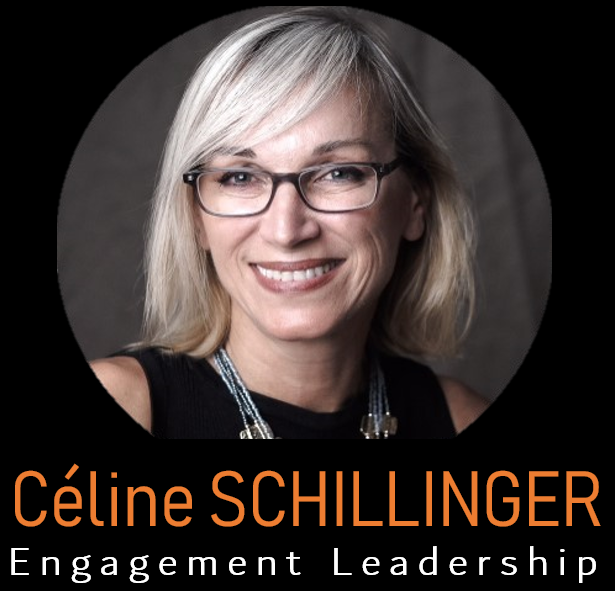The World's Silent Hum: Why We Need to Tune into Resonance
Reading "Resonance, A Sociology of Our Relationship to the World" by Hartmut Rosa
This is the first post of a series of articles: The “Un-Lead Vibe”: Resonating for a Better Future. Read Part 2: Leadership & Resonance. Read Part 3: the Brussels Airlines case study
Throughout my career, I have gradually acquired knowledge of various concepts that now comprise the elements of my professional toolbox — the cards in my deck.
When a problem or opportunity arises, I activate and combine these concepts to create a way forward. Cards include “Systems,” “Complexity,” “Movement,” “Agency,” and so on.
Recently, I added a new card to my deck: "Resonance."
Resonance is “the quality of our relationship to the world”. I look at this through the lens of work and leadership because we experience the world in a large part through our work, and because relational leadership is a passion of mine (and what I do as a consultant).
Resonance: A Sociology of Our Relationship to the World was written by Hartmut Rosa, a leading German sociologist and philosopher, and published in 2016.
While this dense, serious, and massive book (1.84 lb for the paperback!) patiently awaited its moment on my bookshelf, I already knew it offered an illuminating perspective on our contemporary world. More importantly, I sensed powerful connections to my own professional practice: the intertwined challenges of leadership and engagement in the corporate sphere.
I plan to write about this in three parts:1) an introduction to the concept as presented by Rosa (this post); 2) the implications of resonance for corporate leadership: lessons and pitfalls; and 3) an example of application of the concept, through a concrete realization.
If you’re interested enough to go through the whole series, or even just a part of it, please share your thoughts. I’m curious to know how “Resonance” meets your own experience.
Work That Rings Hollow? The Silent Crisis of Modern Organizations
For 30 years, as both an employee and now a consultant, I've seen firsthand how organizations, often unintentionally, gradually "switch off" their collaborators.
It's a sobering reality: employee engagement, typically high at the start of a career, plummets, only to barely resurface as retirement nears.
We observe work processes that actively hinder collaboration and interpersonal resonance, leading to a troubling rise in burnout cases, even among management and disillusioned young recruits.
For far too many, work simply doesn't "sing"; it fails as a space for personal fulfillment or the production of collective value.
This silent crisis unfolds amidst a tense socio-political backdrop where populism and even fascism are on the rise, manifesting as "cries of rage", as explored in my previous post, "(Un)Leading Through the Populist Crisis" and in Siegried Lautenbacher’s response: “A Dialogue on Populism, Powerlessness, and the Power of Community Feeling.”
Why Read This Book, Now? A Call to Re-Vibrate
Beyond the book’s reputation, three things made me want to read "Resonance":
"Not a node, but a frequency." Years ago, my friend Jennifer Sertl offered this insight while I was deeply immersed in understanding networks: "You're not a node, you're a frequency". This immediately resonated, shifting my perspective from fixed points to the dynamic possibility of vibrations.
"The 'Aha' of Reflective Resonance." Allison Pugh's remarkable book, "The Last Human Job: The Work of Connecting in a Disconnected World," (whose work on "Connective Labor" I've discussed in my own "Dare to Un-Lead" ) speaks of "reflective resonance"—those small, miraculous moments that define our best human interactions.
The Community Studio. Finally, my recent work with organizations on engagement leadership led to "The Community Studio," an original offering developed with Laila Noort. It's a purposely simple yet powerful way to forge new connections in the workplace through audio, voice, and narrative interactions.
All this finally pushed me to delve in "Resonance" this spring of 2025.
Resonance: Exploring a Better Connection to the World
"Resonance" explores the concept of resonance as a vital alternative to the pervasive alienation of modern societies.
Rosa asserts that resonance is far more than mere harmony or an echo; it represents a "dynamic and transformative engagement with the world".
A truly resonant relationship occurs when we are touched or called upon by something – be it a person, an object, or an idea – and we respond in a way that modifies both ourselves and the object of that connection. This experience is accompanied by feelings of "affect, connection, and a sense of personal efficacy," where our response truly makes an impact.
"Resonance is a specifically cognitive, affective, and bodily relationship to the world in which subjects are touched by certain segments of the world, but are at the same time themselves responsively, actively, and influentially related to the world and experience themselves as effective in it".
Rosa argues that the pursuit of resonance is fundamental for a fulfilling life and a healthy society.
He contrasts resonance with alienation, “a mode of relating to the world in which the subject encounters the subjective, objective, and/or social world as either indifferent or repulsive.“ In Rahel Jaeggi’s, words, quoted by Rosa, alienation is a “relation of relationlessness.”
Rosa links alienation to the relentless social acceleration that defines our lives. This acceleration, fueled by technological progress, rapid social change, and constant time pressure, tends to instrumentalize our relationships. Instead of vibrant resonance, we often find ourselves in "mute relationships", where the world feels like a mere resource to exploit or an obstacle to overcome, devoid of genuine exchange or mutual transformation.
While potential spheres for resonance are abundant—our interpersonal relationships, work, nature, art, spirituality, and more —the imperatives of late modernity frequently obstruct their establishment and maintenance.
What Resonance is NOT: Addressing Potential Misconceptions
I think it's important to make it clear that resonance isn't some wishy-washy, new age, personal development notion. For one thing, it's not my style, and for another, it would be very useless in the context of work.
To clarify the concept a little further, we can examine what it is not. All quotes are from Rosa, emphasis is mine:
Resonance is NOT an emotional state: “Resonance is not an emotional state, but a mode of relation that is neutral with respect to emotional content.” Emotional stimulation alone should not be mistaken for resonance.
Resonance is NOT a passive relationship: “A responsive relationship [is] a multidimensional process, denoting not only a state of ”agreement” or non-contradiction, but a more active, dynamic moment of encounter or mutual address. Mind and body, self and world enter into a kind of energetically charged form of contact.”
Resonance is NOT complete openness: “Resonant relationships require that both subject and world be sufficiently “closed” or self-consistent so as to each speak in their own voice, while also remaining open enough to be affected or reached by each other.”
Resonance is NOT avoidance of alienation: “Resonance and alienation are not simply opposites, but correlative.” Rosa speaks of a “dialectic” and of a balance to be had, because “resonance necessarily involves moments of inaccessibility and contradiction (…). Resonance is the momentary appearance, the flash of a connection to [something] in a predominantly silent and often repulsive world.”
Resonance is NOT an echo: Fascism and other totalitarian ideologies promote a total, lasting, distorted form of resonance that is pathological in nature. Rosa draws a line “between the concept of resonance response, which not only permits but requires contradiction, and the identitarian concept of resonance as echo.”
What Do Critics Say? The Ongoing Dialogue
While widely acclaimed, Rosa's theory isn't without its critics. Some point to a potential "naturalization" of the concept, arguing it lacks sufficient social grounding. Others highlight a perceived "lack of specificity" that complicates empirical application. There's also the critique that Rosa doesn't delve deeply enough into power dynamics and social inequalities, nor does he fully clarify his contribution to critical theory.
Nevertheless, Rosa is known to engage with these useful and productive debates, welcoming the ongoing intellectual exchange.
Want to Dive Deeper? Initial Resources
If this introduction has piqued your interest, I'll be sharing additional resources to explore the concept further. Feel free to share your own! And I’ll add them to this post.
For now, check out the Wikipedia page on resonance in sociology, a UNESCO video conversation with Hartmut Rosa, a longer podcast discussion, and of course, the book itself.
How Does Resonance Inform Leadership? To Be Continued…
Ultimately, "Resonance" serves as an invitation to re-evaluate our rapport with the world and others. Rosa offers this concept to not only understand the challenges of late modernity but also to imagine alternative ways of living and organizing society that foster a deeper, more meaningful, and transformative engagement with reality.
I am convinced that this transformation can happen in the workplace – provided leadership makes it possible, as we’ll see in the following posts.
Have you read "Resonance" or other works by Rosa? How did that resonate with you and your work?
Read The Un-Lead Vibe, Part 2: Many Voices Together – on Resonance & Leadership
Read The Un-Lead Vibe, Part 3: The Community Studio - Making resonance real in the workplace



